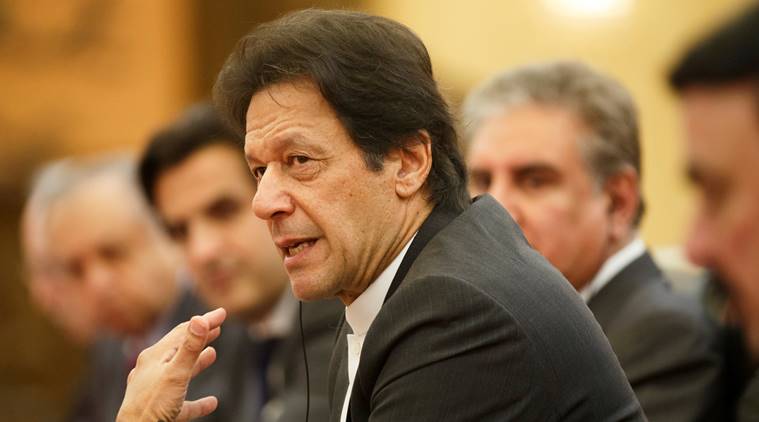View From The Neighbourhood
A weekly look at the public conversations shaping ideas beyond borders — in the Subcontinent. Curated by Aakash Joshi.

The March 1 editorial in Dawn, written after Pakistan Prime Minister Imran Khanannounced that his country would release Indian Air Force Wing Commander Abhinandan, backs what it calls “a step in the right direction”. The newspaper seems clear that diplomacy and peace is the only way forward for India and Pakistan and welcomes the words and announcements of the PM Khan in that direction. It adds that “it will almost certainly take more urgent diplomacy by the international community and a significant change in Indian rhetoric and actions before the risk of conflict, or worse, can be deemed to have receded at this stage.”
The editorial seems to imply that the Pakistan government has acted maturely through the current crisis: “Throughout the present crisis, the national leadership has emphasised that while Pakistan reserves the right to defend itself against external aggression, Pakistan does not want and is not seeking war with India. The prime minister has termed the pilot’s release a “peace gesture”, and New Delhi should use it as an opportunity to recast the discourse inside India, which has drifted dangerously towards jingoism and pro-war sentiment in recent days. With so much of the war discourse focused on abstract and, arguably, removed-from-reality notions of pride and definitions of success, the captured Indian pilot has provided a human face to the potential costs of war.”
It also takes to task the irresponsible role the media has played in both countries: “The Indian media immediately and overwhelmingly cheered on the Indian state’s claim of having targeted an alleged militant training camp in Pakistan, while sections of the Pakistani media celebrated the downing of an Indian warplane and the capture of the pilot.In the main, the media in neither country has attempted to factually contribute to the national discourse; it has focused, instead, on promoting unchecked and unverified state narratives.”
Global disrepute
Farrukh Khan Pitafi, an Islamabad-based TV journalist in an article titled ‘Mutually assured disreputation’ in The Express Tribune, points to a fact that is sometimes forgotten or glossed over in the talk of war, deterrence and conflict in South Asia: “We, South Asians, live in a nuclear tinderbox.”
He adds: “India and Pakistan have huge stockpiles and means to effectively deliver the nukes. Without going into extrapolations suffice it to say a full-fledged nuclear war between the two nations means millions would die on both sides. And yet in the past fortnight, India has endured a psychotic break with reality. Indian pundits often say that this talk of nuclear mutually assured destruction is Pakistan’s nuclear blackmail. How blasé? Use your imagination, man. War has a momentum of its own.”
He adds: “India and Pakistan have huge stockpiles and means to effectively deliver the nukes. Without going into extrapolations suffice it to say a full-fledged nuclear war between the two nations means millions would die on both sides. And yet in the past fortnight, India has endured a psychotic break with reality. Indian pundits often say that this talk of nuclear mutually assured destruction is Pakistan’s nuclear blackmail. How blasé? Use your imagination, man. War has a momentum of its own.”
Like the editorial in Dawn, Pitafi too holds the media to account. But he lays the blame more at the door of Indian journalists. Though, according to him, their Pakistani counterparts are not without blame either. The implications of this are negative for both countries: “Why does this matter? It matters for two reasons. People and the profession. People because in these racist times you forget that the world is watching. No matter how much we try to distinguish ourselves, to the outsiders we look and sound the same. The same colour of the skin, more or less the same language. Since our hate exchanges are often in the English language now, they proliferate. What India says about Pakistan and what Pakistan says about India all stays in people’s mind. To a European, an American or a citizen of any other country, this is not an indictment of India or Pakistan but of South Asians as a whole. I call it mutually-assured disreputation. In coming days this will compound the difficulties faced by the South Asian diaspora. If you want your people to be treated compassionately abroad, you will have to show you are capable of compassion yourself.”
Standing down
The Daily Star’s March 3 editorial breathes a sigh of relief at the return of Wing Commander Abhinandan and the de-escalation of hostilities between India and Pakistan. A war between the two South Asian nuclear powers, after all, will have a deep impact on Bangladesh. The editorial makes sure to congratulate Pakistan and PM Imran Khan on the “prudent, timely and diplomatic” gesture” — returning Abhinandan. After reiterating its stand on peace between India and Pakistan, the editorial sums up what it sees as the core issues: “Pakistan must stop sheltering terrorists inside its territory. Indirect war may be a cheaper alternative for a country, an inexpensive expedient to bring to bear pressure on an adversary, but it can boomerang badly. Pakistan should follow up seriously with its peace gesture by starting to take tangible measures to tackle terrorism, and India should take PM Imran Khan at his word that Pakistan is willing to work with its neighbour to confront the menace of terrorism.” India on its part needs to address the Kashmir situation to the satisfaction of the people of Kashmir.










.png)




























No hay comentarios:
Publicar un comentario